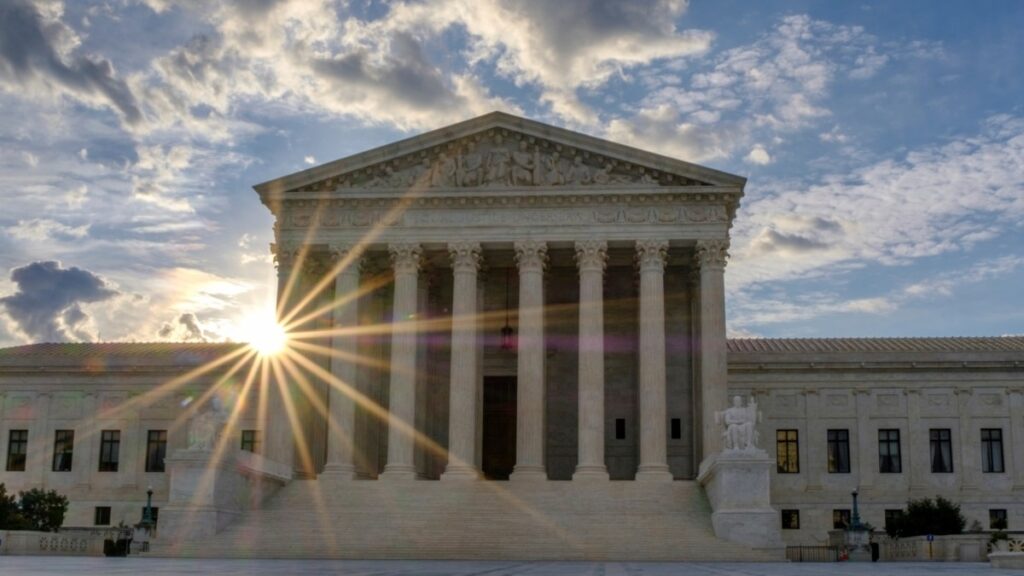President Trump Was Correct About the Constitution and Elections – Kari Lake’s Lawsuit Shows Why
President Donald Trump came under massive amounts of fire recently for saying, “So, with the revelation of MASSIVE & WIDESPREAD FRAUD & DECEPTION in working closely with Big Tech Companies, the DNC, & the Democrat Party, do you throw the Presidential Election Results of 2020 OUT and declare the RIGHTFUL WINNER, or do you have a NEW ELECTION? A Massive Fraud of this type and magnitude allows for the termination of all rules, regulations, and articles, even those found in the Constitution. Our great “Founders” did not want, and would not condone, False & Fraudulent Elections!”
What President Trump is noting, is the exact same reason why Kari Lake’s lawsuit, like every other election lawsuit before it, will fail. Our U.S. Constitution permits election fraud and manipulation, as long as that state level election fraud and manipulation does not break federal law. {Direct Rumble Link} – WATCH:
Obviously, it would be frustrating for President Trump to ask legal advisors what can be done about certified results from fraudulently constructed elections. The reply from the legal advisors around the state certification would frustrate anybody, because the constitution permits fraudulent elections. The decision on how to conduct elections is entirely up to the states.
The states, via state legislature, determine their election rules, laws and outcomes that eventually lead to state certification. If a state wants to block voters, impede voters, or manipulate the voting outcome, there is generally nothing in federal law to stop them – as long as the state or county does not break federal laws protecting classes or protected categories of persons.
 Federal law generally prohibits disenfranchisement of people based on race, age, national origin, sex, marital status, disability, pregnancy, gender, sexual orientation and disability, along with other categories.
Federal law generally prohibits disenfranchisement of people based on race, age, national origin, sex, marital status, disability, pregnancy, gender, sexual orientation and disability, along with other categories.
Federal law does not prohibit disenfranchisement based on ideology, political affiliation or outlook. If a state or local election system wants to block voters based on affiliation or ideology, they can…. as long as it doesn’t have a disparate impact on the protected category.
If a state legislature wanted to assign 1/2 value to each Republican vote, there is nothing in the constitution that would prohibit that rule.
If a state election outcome results in the loss of 50% of the republican votes in the local or state election, there is nothing in the federal law that would correct the issue. The state is responsible for certifying the results.
The supreme court will not hear an election controversy issue or legal challenge based on certified results from states. The constitution permits states to conduct their own elections, and as long as federal laws are not violated, the state certification ends the discussion. This is the great dichotomy within U.S. election around election manipulation by a state or local election officials. There is no federal recourse if no federally protected category was adversely impacted.
The DNC argues election disenfranchisement, rules, dates, times, locations, etc based entirely on protected federal categories, ie. the date or method of the election has an adverse impact to a specifically protected category of racial minorities. This is the typical DNC lawsuit.
EX. the RNC or DNC candidates have no legal footing to sue in federal court if everyone wearing a green shirt was turned away from county polling locations; unless they can prove that a green shirt was worn by a higher percentage of a protected category of persons (i.e., disparate impact).
Additionally, due to the private nature of the corporations that run candidates, notably the RNC and DNC, there is also no prohibition to stop the RNC or DNC from disapproving candidates unless they also were discriminating based on a protected category. Not coincidentally, political parties are not recognized in the U.S. constitution.
This election reality is why control over state level elections is where the battle has to be fought. Once a state certifies the election outcome, there is almost no way the federal courts can/will intervene unless the lawsuit is based on a claim that federally protected voters were specifically targeted.





Post a Comment